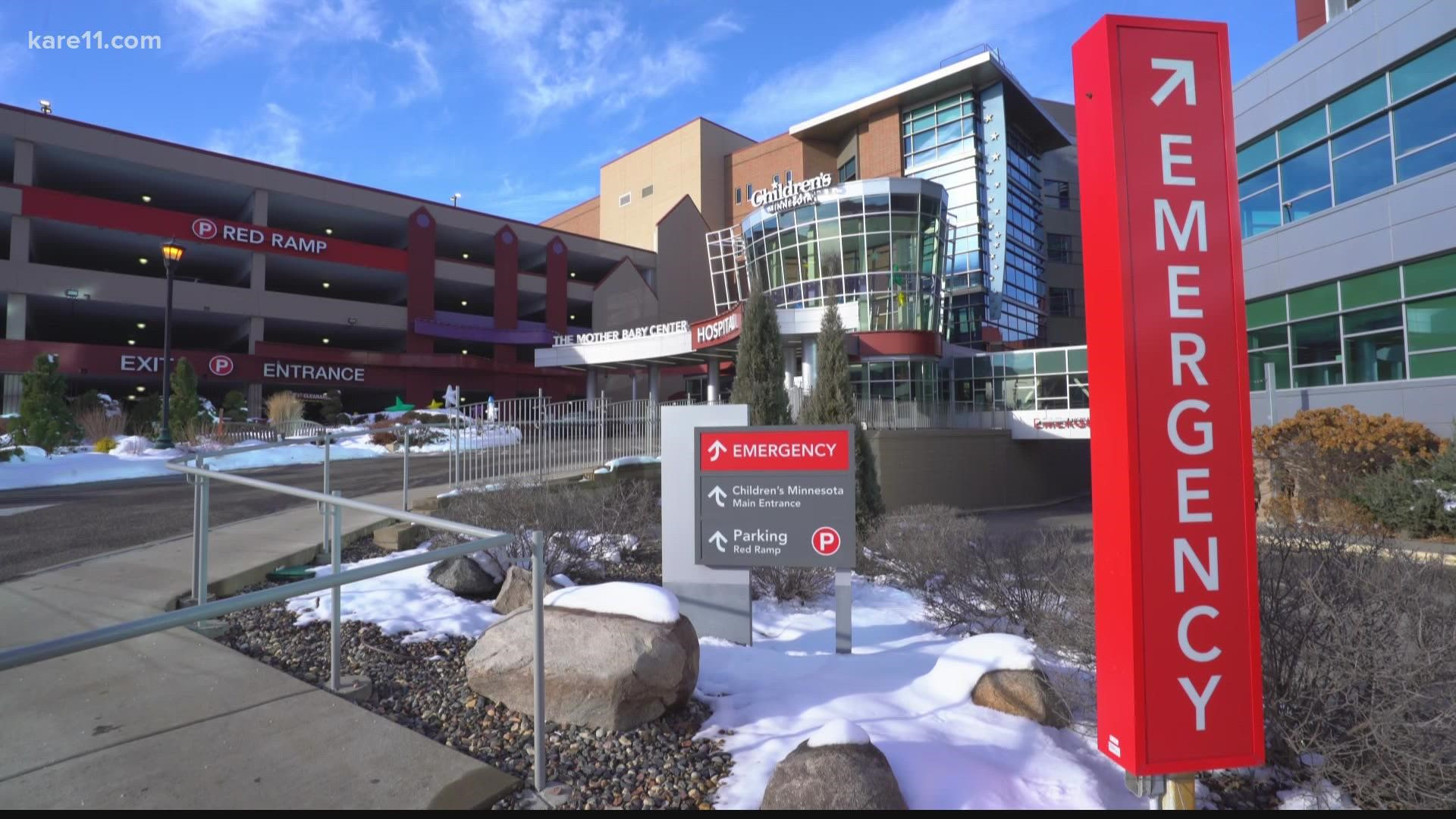MINNEAPOLIS — Children's Minnesota is practically mirroring what grown-up hospitals are seeing.
"Our clinics are also just swamped," Joe Kurland said. "At Children's Minnesota we have walk-in capabilities in several of our clinics. They were 260% above capacity on Monday."
Kurland, a vaccine specialist and infection preventionist at Children's Minnesota, says if your child is showing suspected COVID symptoms the best thing to do is stay home, if you can keep them home.
"Some kids present with fever, some kids have sore throats, runny nose, cough, fatigue, body aches and just being tired. It has a wide range of symptoms," Kurland said. "Unfortunately there isn't one telltale mark to identify it from other viruses."
Kurland says he knows it's not easy to find tests right now.
"We really want folks to not to come to the emergency room unless they're having difficulty breathing, cardiac problems, or severe illnesses," Kurland said. "Contacting your doctor's office to see if there's an option to get tested through them, if there are testing options through the state, and if you're lucky enough to find those antigen tests at home, that's always an option too."
Although younger children tend to fare better when it comes to respiratory illnesses, Kurland says vaccinations still remain top priorities.
"Kids that are too young to be vaccinated, make sure you're vaccinated, make sure that the parents and other families in the house are vaccinated...that the older kids, family members of those kids, if they're going to play at other people's houses, make sure they're vaccinated. If they attend daycare, do the daycares require masks, are the staff vaccinated?"
Lastly, knowing when to take your child to the hospital is key too.
"If your child has any difficulty breathing is a big one...difficult for them to catch their breath, they can't speak in full sentences. They may have a sore throat so it may be painful or difficult for them to speak, but if they're having trouble getting words out, that's not just time for the hospital but maybe even an ambulance because breathing difficulties can set on rapidly," Kurland said.
Saying we should just get it and get it over with is not a sensible thing to do at this time. Kurland says that would be a disservice to the folks who are staffing full hospitals.
"It's really going to risk overwhelming the health systems," he added. "So families, parents, even adults themselves, can help us out by taking responsibility. If they don't feel well, stay home, if you cant get tested, stay home, monitor your symptoms. If you can find a test, great, if you can't, follow CDC guidelines and stay home for that 10-day period."
Watch more on the coronavirus:
Watch the latest reports and updates on the coronavirus pandemic in Minnesota with our YouTube playlist:

